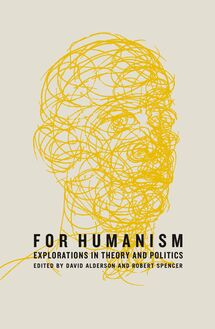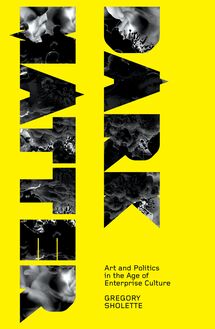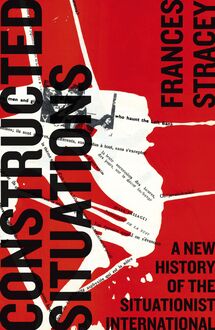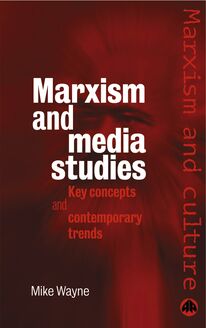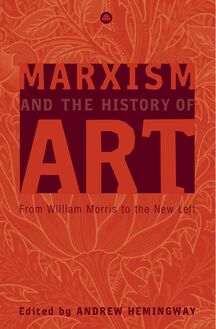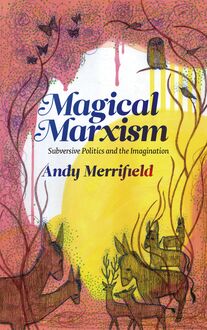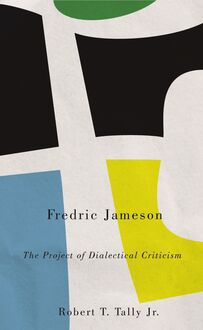For Humanism , livre ebook
165
pages
English
Ebooks
2017
Vous pourrez modifier la taille du texte de cet ouvrage
Obtenez un accès à la bibliothèque pour le consulter en ligne En savoir plus
Découvre YouScribe en t'inscrivant gratuitement
Découvre YouScribe en t'inscrivant gratuitement
165
pages
English
Ebooks
2017
Vous pourrez modifier la taille du texte de cet ouvrage
Obtenez un accès à la bibliothèque pour le consulter en ligne En savoir plus
Publié par
Date de parution
20 février 2017
Nombre de lectures
2
EAN13
9781786800220
Langue
English
Humanism, in all its diversity and complexity, may facilitate the renewal of progressive theory through the championing of human subjectivity, agency and freedom. Across four extended essays, David Alderson, Kevin Anderson, Barbara Epstein and Robert Spencer engage critically with the Marxist tradition, recent developments in poststructuralism, postcolonialism and queer theory.
Incorporating an overview of the historical context that resulted in socialist humanism’s eclipse in the 1950s and '60s, and a strident critique of anti-humanism, For Humanism offers a coherent and compelling argument for the rehabilitation of a much maligned tradition.
Series Preface
Introduction: Humanism’s Other Story - Timothy Brennan
1. The Rise, Decline and Possible Revival of Socialist Humanism - Barbara Epstein
2. Marxist Humanism after Structuralism and Post-structuralism: The Case for Renewal - Kevin Anderson
3. Postcolonialism is a Humanism - Robert Spencer
4. Queer Theory, Solidarity and Bodies Political - David Alderson
Conclusion - David Alderson and Robert Spencer
Index
Publié par
Date de parution
20 février 2017
Nombre de lectures
2
EAN13
9781786800220
Langue
English
For Humanism
Marxism and Culture
Series Editors: Professor Esther Leslie, Birkbeck, University of London Professor Michael Wayne, Brunel University
Red Planets: Marxism and Science Fiction Edited by Mark Bould and China Miéville
Marxism and the History of Art: From William Morris to the New Left Edited by Andrew Hemingway
Magical Marxism: Subversive Politics and the Imagination Andy Merrifield
Philosophizing the Everyday: The Philosophy of Praxis and the Fate of Cultural Studies John Roberts
Dark Matter: Art and Politics in the Age of Enterprise Culture Gregory Sholette
Constructed Situations: A New History of the Situationist International Frances Stracey
Fredric Jameson: The Project of Dialectical Criticism Robert T. Tally Jr.
Marxism and Media Studies: Key Concepts and Contemporary Trends Mike Wayne
For Humanism
Explorations in Theory and Politics
Edited by
David Alderson and Robert Spencer
First published 2017 by Pluto Press 345 Archway Road, London N6 5AA
www.plutobooks.com
Copyright © David Alderson and Robert Spencer 2017
The right of the individual contributors to be identified as the authors of this work has been asserted by them in accordance with the Copyright, Designs and Patents Act 1988.
British Library Cataloguing in Publication Data A catalogue record for this book is available from the British Library
ISBN 978 0 7453 3619 0 Hardback ISBN 978 0 7453 3614 5 Paperback ISBN 978 1 7868 0023 7 PDF eBook ISBN 978 1 7868 0024 4 Kindle eBook ISBN 978 1 7868 0022 0 EPUB eBook
This book is printed on paper suitable for recycling and made from fully managed and sustained forest sources. Logging, pulping and manufacturing processes are expected to conform to the environmental standards of the country of origin.
Typeset by Stanford DTP Services, Northampton, England
Simultaneously printed in the United Kingdom and United States of America
Contents
Title Page
Copyright
Series Preface
Introduction: Humanism’s Other Story Timothy Brennan
1. The Rise, Decline and Possible Revival of Socialist Humanism Barbara Epstein
2. Marxist Humanism after Structuralism and Post-structuralism: The Case for Renewal Kevin Anderson
3. Postcolonialism is a Humanism Robert Spencer
4. Queer Theory, Solidarity and Bodies Political David Alderson
Conclusion David Alderson and Robert Spencer
Index
Series Preface
This book is for humanism in a number of senses, not least as a kind of gift or service performed for an intellectual tradition that has been comprehensively displaced, its reputation traduced, its history crassly simplified and its multiple meanings homogenised, by wave upon wave of antihumanist thinking that has swept the academy since the 1960s. The common sense of several generations of intellectuals has been shaped by the moral-intellectual hegemony of antihumanism in its various philosophical manifestations. Structuralism, post-structuralism, postmodernism, postcolonialism and now today, in its most explicit form, post-humanism, all testify to academia’s giddy intoxification with the rhetoric of epochal change and unlimited possibilities. What need have we in such circumstances for the outworn ‘pre-post’ ideologies of humanism, or indeed socialism, which was in part the real target of the assault on humanism? The latter we have been taught to ‘know’ was a bourgeois, Eurocentric ideology of capitalism, complacent, abstract, individualistic. To be sure, liberal humanism could be all those things and Marxism, surrounded by the material and intellectual authority of liberalism is bound to be influenced by aspects of this liberal humanism which it must in fact struggle to overcome. The struggle to preserve what is positive and discard what is negative within liberal humanism, the struggle to forge a socialist humanism, is bound to be difficult, bound to be a history with many dead ends and impasses. But this is true too of antihumanism, which is another version of liberalism, attuned to some of the most dynamic trends within advanced capitalism, that needed to offer a different model of the subject, of reality, of language, culture and taste. It seemed radical because it exploded one bourgeois model, but only to try and install another.
Humanism may have been less exciting to those driven by the commodification of knowledge, with its incessant need for ‘innovation’ and branding, but perhaps this book will help us discover by recovering its history and philosophical positions, that humanism was and is also rather more steadfast in its political-philosophical commitments, rather more nuanced, rather more patient, sober and perhaps serious about change, than its opponents. In an act of philosophical unpacking, For Humanism tells us that humanism was also more than the offspring of Western capitalist enlightenment thinking. Spatially and temporally it is wider and deeper than that. Politically it is very far from being antithetical to an authentic Marxism, something which the reflex action of contemporary theory, with its infatuations for structures on the one hand or explosive decentrings and fragmentations of the subject and reality on the other, is likely to forget.
Despite Althusser’s influential book For Marx , which lent political respectability to attacks on humanism from the Left, Marx’s thought is of course a humanism. Althusser’s book was not for Marx, but against. Marx’s critique is fired by a moral-normative standard that enables him to dismantle a system based on things, and offer an alternative: people before profit, as the contemporary slogan puts it, is a morally informed critique of capitalist political economy impossible to voice without a humanist conception. A Marxism shorn of humanism is a Marxism no longer interested in human emancipation. Is to talk of ‘humans’ a humanist error? People, humans, of course are organised into classes, of course they are differentiated and of course they are internally contradictory; a Marxist humanism seeks to overcome the first, organise a society that genuinely recognises the second and in doing so, not abolish contradiction as such, but give individuals and societies the means for addressing them productively rather than getting locked into self-destructive spirals of intensification. Humanisation of both nature and social nature, that is the shaping of our environment to meet the needs of humanity, provides an essential moral yardstick by which the judgement delivered against the dehumanisation prevalent within the capitalist mode of production, must be severe.
The undifferentiated assault on humanism has unleashed political relativism across contemporary theory. This is a poor solution to liberal humanism’s uncritical collapse into the abstractions of capitalism. For we cannot do without a transhistorical sense of the needs we have and the capacities that are available to us if we are to critique what exists and hope for something better. That this transhistorical dimension of what it is to be human never manifests itself except through a great variety of historical and social forms, goes without saying. Humanism also has the merit of providing a bridge to a wider public at a time when getting a hearing for socialism, let alone Marxism, has been difficult. Why burn that bridge when it is also a necessary part of our philosophy? Why retreat into a discourse intelligible only to the initiated? Socialism and Marxism provide the resources to reconstruct the problematic abstractions of liberal humanism, and as with capitalism in general, the coming great change must build on and refunction what it inherits from the past. Humanism has been the victim of the rise of identity politics, in which the solidarities and politics of transformation have splintered into discrete oppressions and the claims of recognition have all but eclipsed the politics of wealth redistribution, let alone the ownership, control and production of wealth. We must be for humanism indeed.
Mike Wayne and Esther Leslie Series editors
Introduction: Humanism’s Other Story
Timothy Brennan
Once clearly on the side of the renegades, humanism now seems confused, its protagonists and antagonists passing each other in the night. It is important, then, to begin with a clarification so that one knows what being for or against it means. Humanism has to do above all – and non-negotiably – with secularity. Value belongs first with the only world humans really know, the one not given by nature or ruled by God, the one humans have fashioned by skill and effort. This is quite rightly called a ‘materialist’ view, but matter is not conceived here as inert objects or things; if one dwells only on matter they are not ‘materialists’ from a humanist’s point of view. That must entail a dwelling on sensuous labour and social interaction – the substrate, in other words, of all that binds experience to matter. Not against religion necessarily, humanists are secular only in the sense of being drawn to what transcendence pretends to supersede, viewing the metaphysical – in its classical sense – as reliant on the physical: a conceptual rendering of it.
To say that humans create is, of course, to say they can . And that means that they are free, have agency and can do what they have not done in the past regardless of, or rather because of, their nature . Logically, then, transformation is possible and the future open. Humanists do not believe humans are the only species that matters, only that it is impossible for any species to think outside the limits of its own being – a view that does not preclude ethical behaviour towards other species or respect for the natural environment. As Ludwig Feuerbach puts it in The Essence of Christianity (1841), ‘If God were an object to the bird, he would be an object to it only as a winged being – the bird knows nothing higher, nothing more blissful than the state of being winged.’ 1 Following from this, the humanist contends that ever
